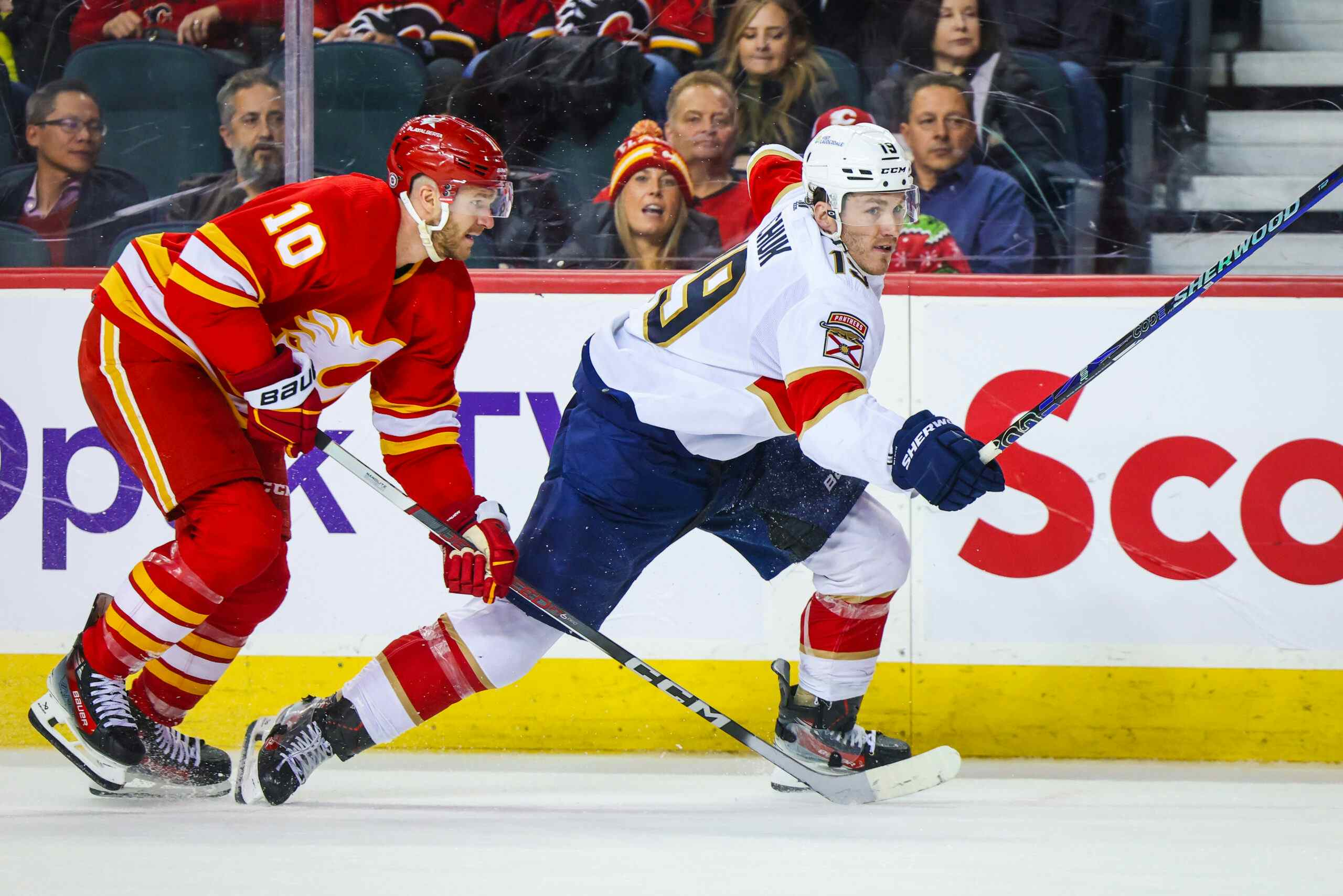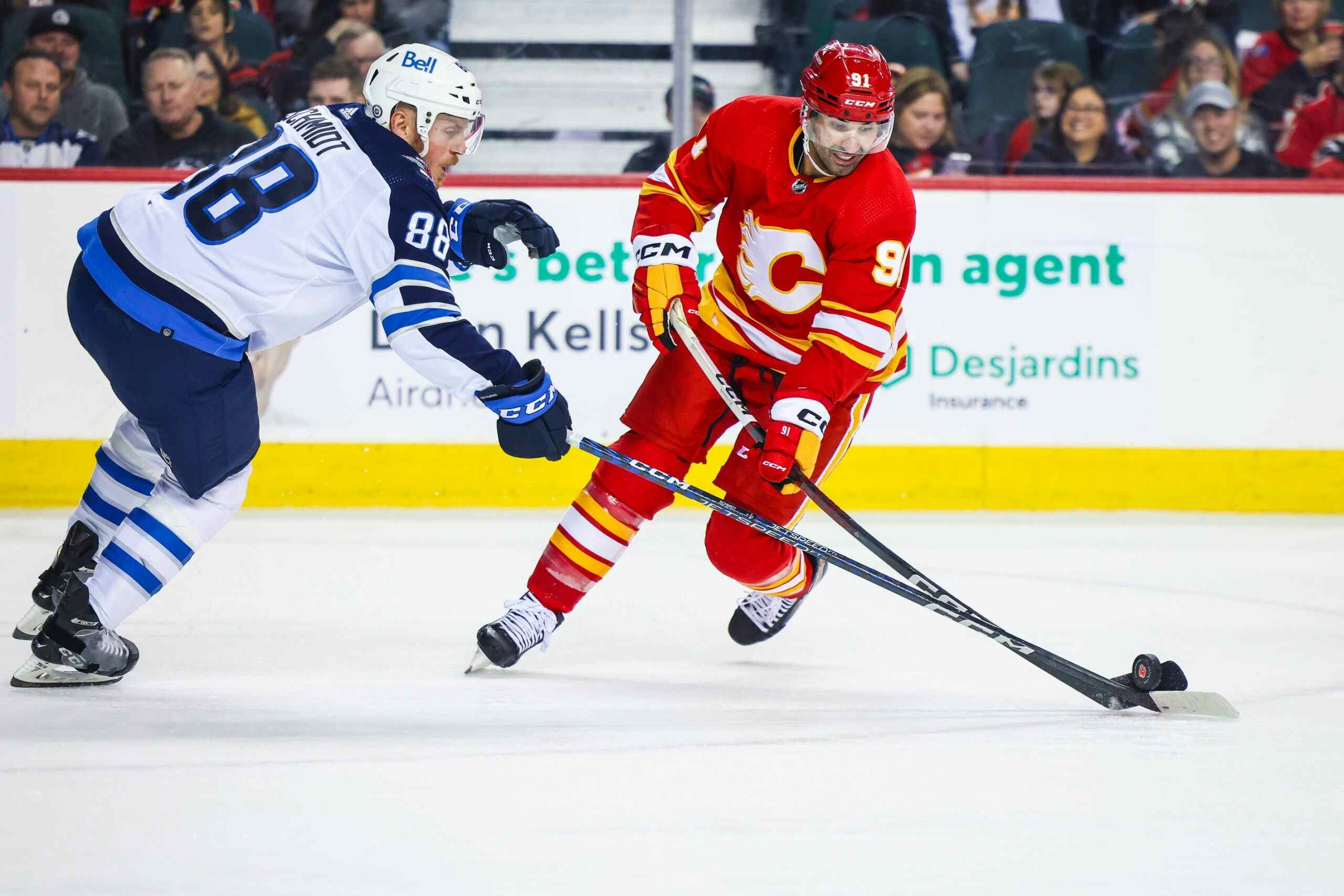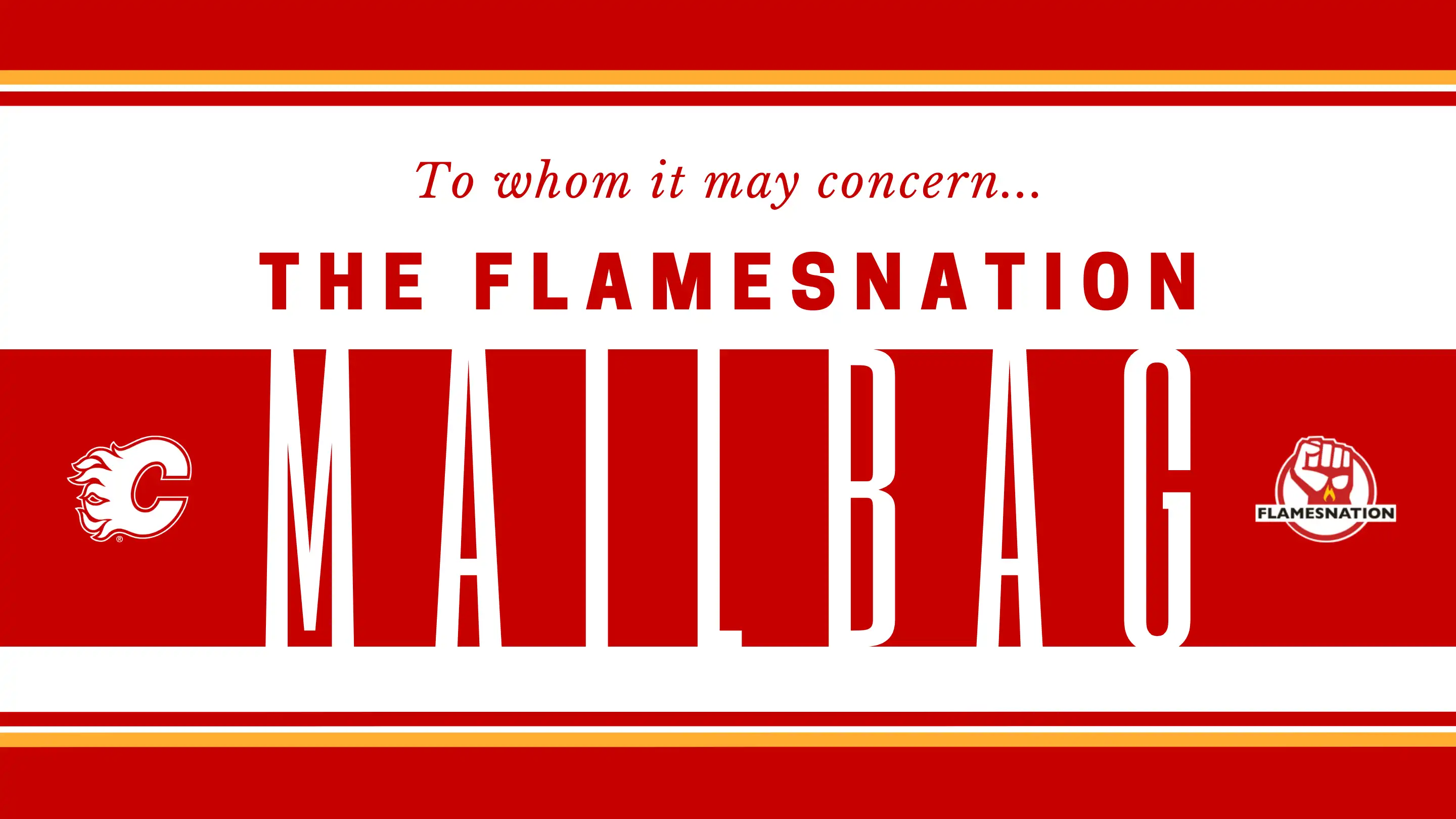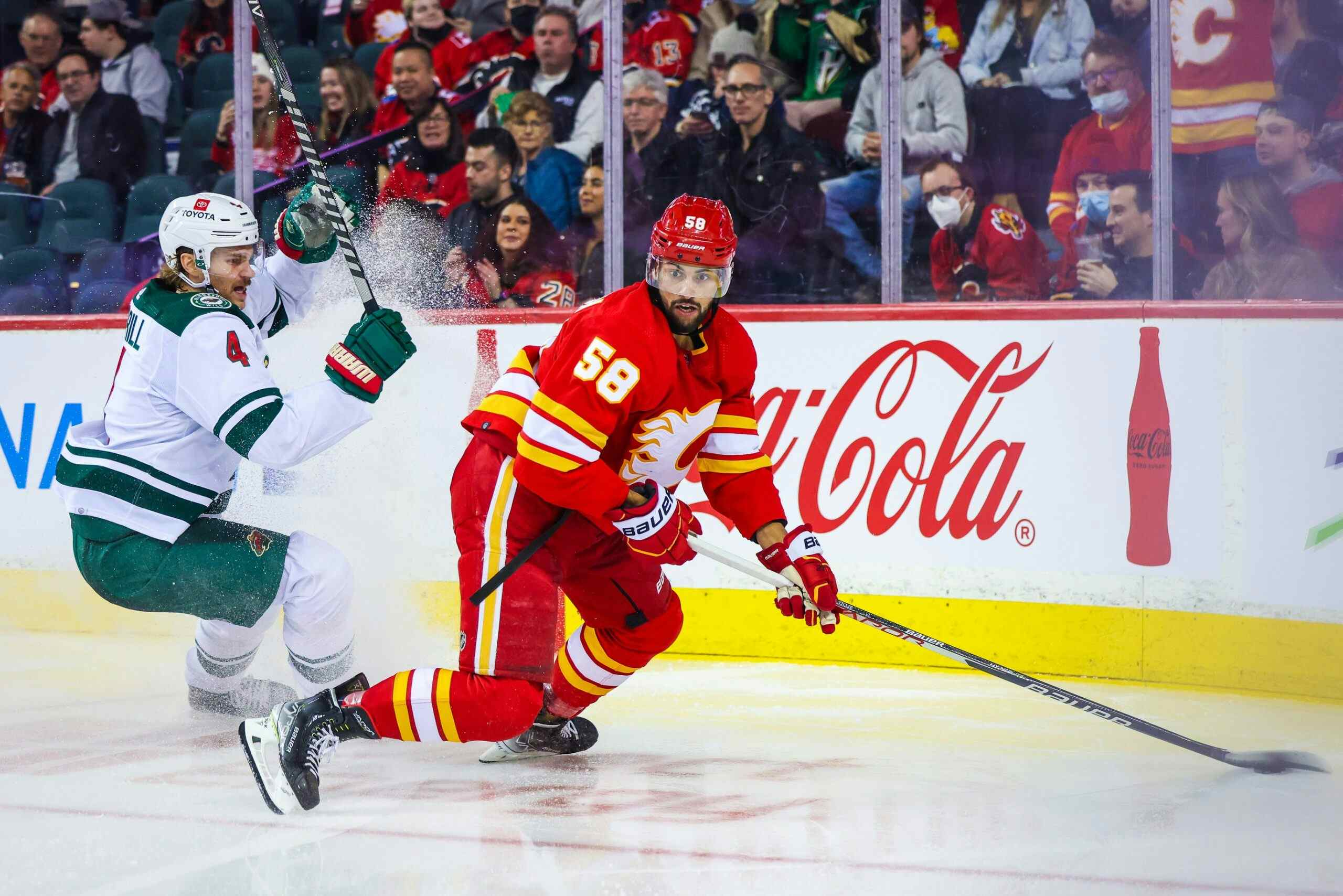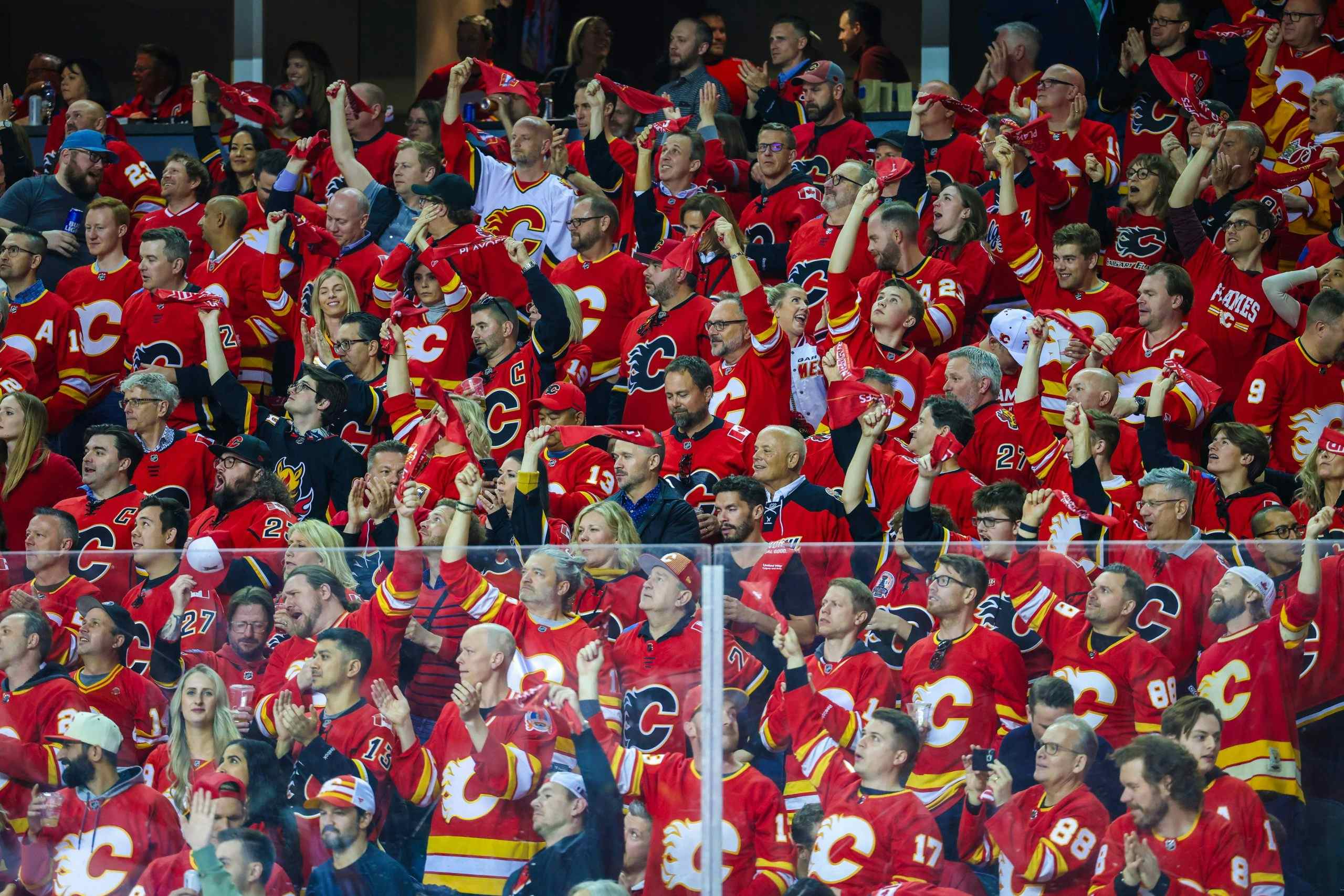Could any Flames file for salary arbitration?
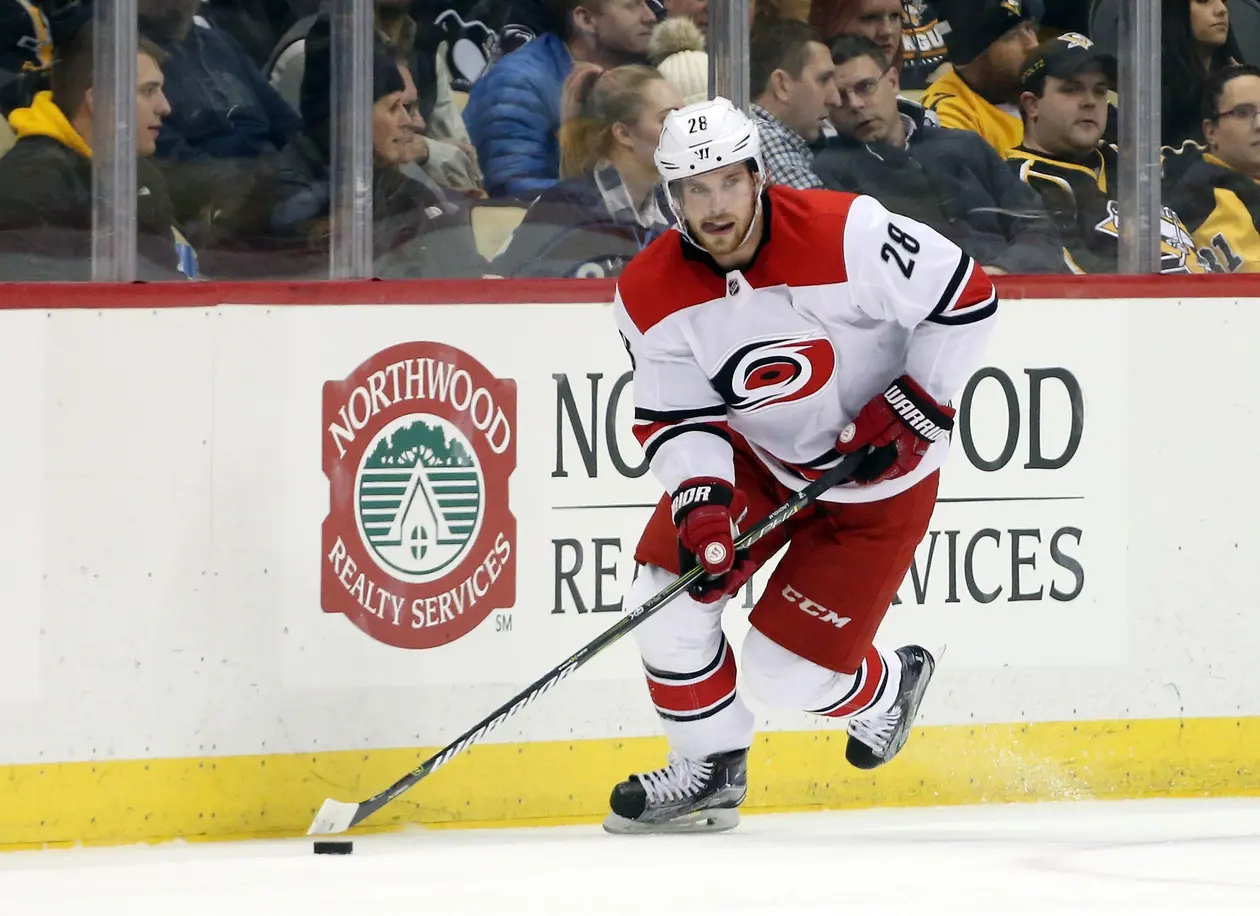
By Ryan Pike
5 years agoAfter the frenzy of moves and signings over the past two weeks, it’s easy for fans and followers of the Calgary Flames to be a bit out of breath. A lot has happened, and there’s still the better part of three months until training camp opens in early September. So, what’s left to happen before everyone arrives in Calgary?
One big piece of business is the re-signing of the club’s nine restricted free agents to new deals. Of interest this week is Thursday’s 3 p.m. MT deadline for players to file for salary arbitration. Five Flames RFAs have enough accrued experience to qualify for arbitration. Would it make sense for any of them to exercise that option?
All about arbitration
By virtue of having a particular combination of age and professional experience, five Flames RFAs have the option to file for salary arbitration: Elias Lindholm, Mark Jankowski, Garnet Hathaway, Brett Kulak and David Rittich.
Arbitration is a complex process, but it boils down to basically this:
- The player side collects statistics and finds comparable players with favourable contracts, arguing that it would be crazy to have this player make any less than their counterparts because they’re so alike. (In other words: “Brett Kulak is awesome and should make amazing money.”)
- The team side does the same, except citing stats and arguing that the comparable players the player side has are bunk. Then they present comparables they feel are more representative of how the player should be compensated. (In other words: “Brett Kulak is a fine player, but sucks so bad in specific ways that he should get a crappy contract.”)
- The player can request a one- or two-year contract in the arbitration process. After hearing both sides, the arbitrator makes their binding recommendation. Unless the cap hit is over a certain amount, the team and player are then locked in.
Because the process involves, out of necessity, the team publicly burying a player and the airing of grievances, typically both sides try to avoid actually going to the hearing. The reason players file for arbitration is usually to put a deadline on getting a contract negotiated, rather than having the process drag on for months – as what happened with Sean Monahan and Johnny Gaudreau a few summers ago.
Who doesn’t have any comparables?
Generally speaking, players who have barely dipped their toe in the NHL pool don’t have a great sample size of comparable players to select from because you’re trying to find a defined market value for a similar player, based on a recent contract. For example, imagine you’re the agent for Rittich or Hathaway: Rittich has two years of North American pro hockey under his belt and Hathaway finally got into the NHL full-time after yoyo-ing for several seasons. It’s extremely difficult to find players whose circumstances are close enough to really provide ammunition in a hearing.
Who has okay comparables?
There are reasonable comparisons for both Jankowski and Kulak, but the challenge is the contracts those players got are all over the place.
Jankowski has one NHL season under his belt with 25 points in 73 games. Players of similar age, experience and productivity include Seth Griffin (signed for 2018-19 at $650,000), Chandler Stephenson ($650,000), Joseph Blandisi ($680,000) and Martin Frk ($1.05 million). Frk is arguably the best comparable, though, as he also spent time at lower levels before breaking through last season at the NHL level – though Frk has considerably more pro experience than Jankowski.
Kulak has a couple NHL seasons under his belt – one full – and has 11 points in 101 games. Players of similar age, experience and productivity include Slater Koekkoek ($865,000) and Matt Grzelcyk ($1.4 million). Given that Kulak has been used in a more limited role than Grzelcyk and is still establishing himself at the NHL level, Koekkoek is arguably the better fit (but still isn’t perfect).
Who has decent comparables?
Lindholm has spent more years in the league than Jankowski or Kulak, so it should be easier to find players with similar career trajectories, roles, and offensive production. There’s good news and bad news if you’re looking for an arbitration case for him.
The good news is that Bo Horvat and Alexander Wennberg both signed new contracts in the last year after posting similar offensive numbers in fairly similar roles to Lindholm’s. The bad news is that those players signed six-year deals, which really don’t help when it comes to arguing a one- or two-year arbitration ward.
On the other hand, Andre Burakovsky recently signed a two-year contract but he’s only a little bit similar to Lindholm’s production and role. All citing Burakovsky’s $3 million bridge deal would do in arbitration is make the arbitrator go, “So more than $3 million, then? Cool.” It’s not exactly the slam dunk argument you’re looking for if you’re going to arbitration in the first place.
Sum it up
In other words, for several years, it really seems unlikely that any of the Flames’ five potential arbitration cases will bother to file for salary arbitration. They just wouldn’t be able to find suitably compelling comparisons to compel the arbitrator to take their side.
ARTICLE BROUGHT TO YOU BY SPORTS EXCELLENCE

Founded in 1950, Sports Excellence Corporation represents over 150 family-owned independent hockey retailers across Canada and the United States. Our highly knowledgeable hockey specialists are available to assist all your equipment needs. Find your closest Sports Excellence retailer here: Find a location near you!
Recent articles from Ryan Pike

